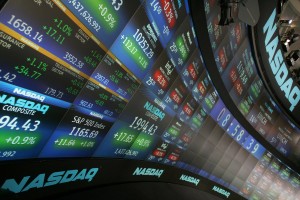(ThyBlackMan.com) Investors tune in with bated breath every time the Federal Reserve Chairman Janet Yellen makes an announcement. Given the historically low interest rates that have been the norm since 2006, investors constantly speculate on when the Fed will decide to raise interest rates and by how much. Whether you’re a billionaire stock genius or a retail investor, the outcome of the Fed’s decision will affect you. When you stay informed about these trends, you’re in a better position to make smart investments, whether you invest online or through one of JP Morgan private banking locations.
The Lessons of History
If you turn on the financial news, you’ll hear advice from everyone from hedge funds to TV talking heads. The news, depending on your perspective, can range from slightly disturbing to horrifying. Setting aside predictions about when the Fed will raise interest rates (answer: no one really knows), the big question is what will happen to your investment portfolio when rates rise. Before looking at the “big picture” data, it is important to remember that predicting the future based on past market performance is inherently risky. Each era is unique, and the stock market will never adhere perfectly to history lessons.
Stocks aren’t as affected by interest rates as you may think
Still, however, placing our current situation in historical context can help investors make sound decisions. Data from previous hikes, dating back to the mid 1970s, suggests a few lessons. First, and perhaps most surprisingly, the data shows that stocks keep their value surprisingly well in the period immediately before and after rate hikes are implemented. For example, interest rates increase in the year before a rate hike cycle, averaging a return of 18 percent compared to 11.6 percent in a typical yearlong period. After the rate hike cycle is over, stocks have still averaged a 14.6 percent return.
Now, the caveat is that stocks do perform worse during the actual rate hikes themselves. However, in the end, stocks still provide positive returns when one looks across a whole period of rising rates. The S&P 500 has grown by an average of 8.3 percent over the last  eight periods of rising interest rates since the 1970s—with lower average volatility to boot. What has caused this stability?
eight periods of rising interest rates since the 1970s—with lower average volatility to boot. What has caused this stability?
Foreign stocks perform particularly well
The jury is out, but evidence suggests that the strong performance of international stocks plays a role. Foreign stocks have much greater-than-average returns on investment than domestic U.S. stocks both before and during periods of rising rates. For example, one major index of European and Asian stocks, the MSCI EAFE Index, boasts a whopping 25 percent average return compared with a standard 11 percent return over a one-year period.
What’s an investor to do?
The data suggests that foreign investments historically have weathered periods of rising interest rates better than domestic stocks. For more information about the pros and cons of investing in foreign stocks, contact an advisor at your financial institution of choice, such as one of the many JP Morgan private banking locations. Though you need to keep informed, your best bet is not to rely on predictions from any one voice but instead to look at the data. While history is not a perfect guide, it does offer promising clues as to which way the market will head once the Fed gives in and finally raises interest rates.
Staff Writer; Steve Woods

















Leave a Reply